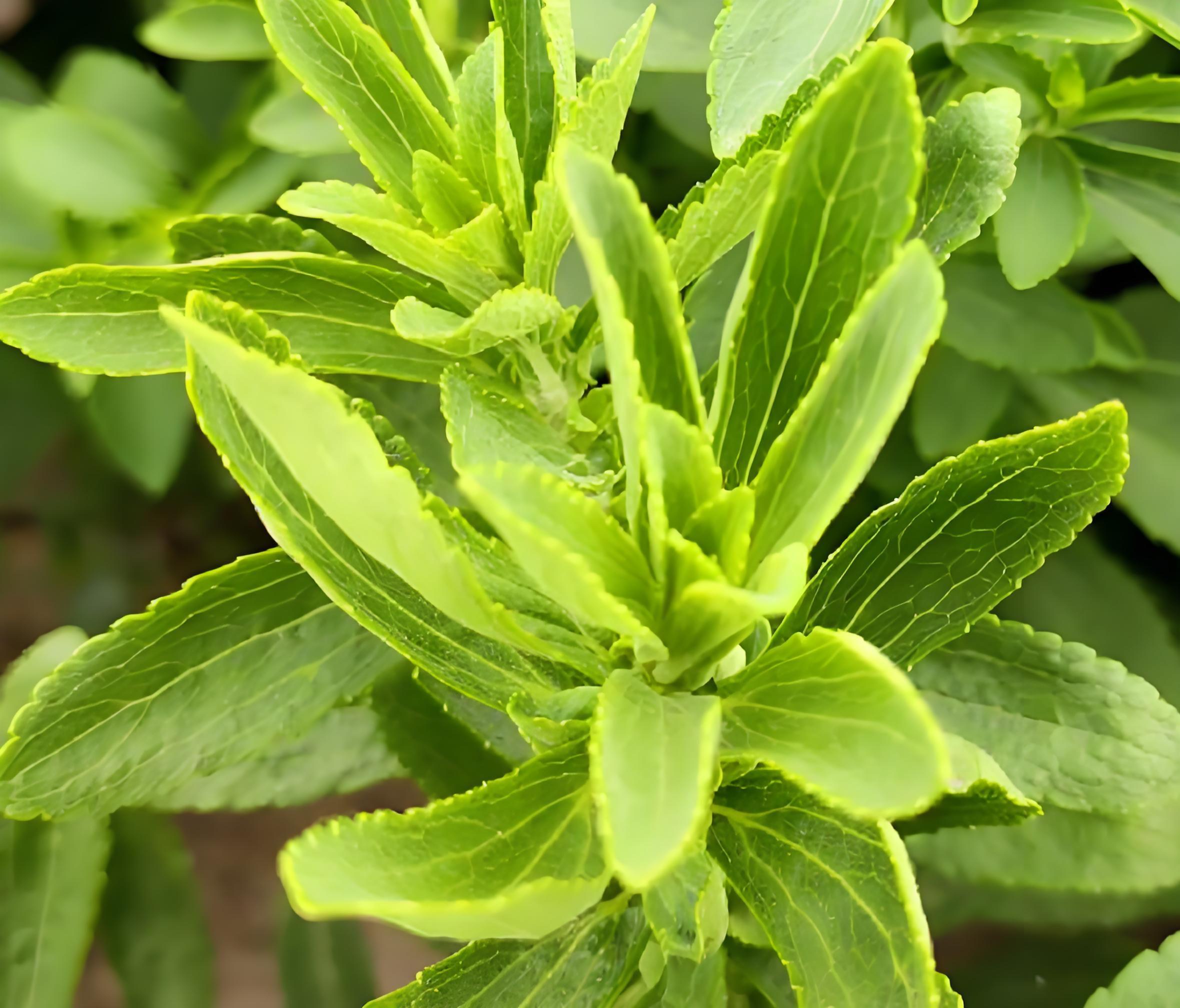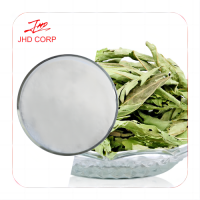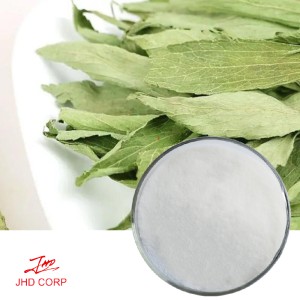Stevia Extract: A Healthier Choice For Diabetics
 Stevia Extract: A Healthier Choice For Diabetics
Stevia Extract: A Healthier Choice For Diabetics
For individuals managing diabetes, finding suitable alternatives to sugar is crucial for maintaining healthy blood glucose levels. Enter stevia extract, a natural sweetener derived from the leaves of the Stevia rebaudiana plant. This zero-calorie sweetener has gained popularity as a potential game-changer for those with diabetes, offering a way to satisfy sweet cravings without the glycemic impact of traditional sugar. In this comprehensive guide, we'll explore how stevia extract compares to sugar in terms of glycemic index, its effects on blood glucose levels, and practical ways to incorporate it into diabetic-friendly recipes. Whether you're newly diagnosed with diabetes or looking for ways to optimize your diet, this article will provide valuable insights into making stevia a part of your health-conscious lifestyle.
Understanding Glycemic Index: Stevia vs Sugar
To appreciate the benefits of stevia for diabetics, it's essential to understand the concept of glycemic index (GI) and how it differs between stevia and sugar.
What is Glycemic Index?
The glycemic index is a measure of how quickly a food can raise blood glucose levels. Foods with a high GI are rapidly digested and absorbed, causing a sharp spike in blood sugar. In contrast, low GI foods are digested and absorbed more slowly, resulting in a gradual rise in blood glucose.
Stevia's Glycemic Index
Stevia extract has a glycemic index of zero, meaning it does not cause any increase in blood glucose levels. This makes it an ideal sweetener for people with diabetes who need to carefully manage their blood sugar.
Sugar's Glycemic Index
Table sugar, or sucrose, has a relatively high glycemic index of 65. This means it can cause a rapid increase in blood glucose levels, which can be problematic for individuals with diabetes.
The Importance of Low GI Foods for Diabetics
For people with diabetes, consuming low GI foods is crucial for maintaining stable blood sugar levels. By choosing sweeteners like stevia over sugar, diabetics can better control their glucose levels and reduce the risk of complications associated with frequent blood sugar spikes.
How Stevia Affects Blood Glucose Levels?
Understanding how stevia interacts with the body's glucose metabolism is key to appreciating its benefits for diabetics.
Stevia's Unique Metabolic Pathway
Unlike sugar, stevia extract is not metabolized by the body for energy. Instead, it passes through the digestive system without being broken down or absorbed, which explains its zero-calorie nature and lack of impact on blood glucose levels.
Potential Benefits for Insulin Sensitivity
Some studies suggest that stevia may actually improve insulin sensitivity, potentially helping the body use glucose more effectively. This could be particularly beneficial for individuals with type 2 diabetes, where insulin resistance is a common issue.
Long-term Effects on Glycemic Control
Research indicates that long-term use of stevia as a sugar substitute may contribute to better overall glycemic control in diabetics. By reducing the intake of high-GI sugars and replacing them with stevia, individuals may experience more stable blood glucose levels over time.
Stevia vs. Other Artificial Sweeteners
While many artificial sweeteners also have a low glycemic index, stevia stands out due to its natural origin and potential additional health benefits. Some studies suggest that stevia may have antioxidant and anti-inflammatory properties, which could offer extra advantages for diabetics beyond just blood sugar control.
Incorporating Stevia: Tips for Diabetic-Friendly Recipes
Now that we understand the benefits of stevia for diabetics, let's explore practical ways to incorporate this natural sweetener into your diet.
Baking with Stevia Extract
Baking with stevia extract powder requires some adjustments, as it's much sweeter than sugar and doesn't provide the same bulk. Here are some tips
Use a stevia conversion chart to determine the right amount to substitute for sugar.
Add extra liquid or bulk ingredients like applesauce or yogurt to compensate for the loss of volume.
Experiment with different brands of stevia, as some may have a slight aftertaste that's more noticeable in baked goods.
Stevia in Beverages
Stevia is an excellent option for sweetening beverages without adding calories or affecting blood sugar. Try it in:
Tea and coffee
Homemade lemonades and fruit-infused waters
Smoothies and protein shakes
Cooking with Stevia
While primarily used in sweet dishes, stevia can also be incorporated into savory recipes:
Use it to balance acidity in tomato-based sauces
Add a pinch to salad dressings for a subtle sweetness
Incorporate it into marinades for a flavor boost without the sugar
Stevia-Sweetened Desserts
Creating diabetic-friendly desserts is easier with stevia. Try these ideas:
Sugar-free puddings and custards
No-bake cheesecakes with a stevia-sweetened filling
Fruit-based desserts with a stevia-enhanced flavor
Remember, when using stevia in recipes, start with small amounts and adjust to taste, as its sweetness is much more concentrated than sugar.
Combining Stevia with Other Diabetic-Friendly Ingredients
For optimal blood sugar management, pair stevia-sweetened foods with:
High-fiber ingredients like whole grains and vegetables
Healthy fats from sources like nuts and avocados
Lean proteins to help stabilize blood sugar levels
By thoughtfully incorporating stevia into a balanced diet, individuals with diabetes can enjoy sweet flavors while maintaining better control over their blood glucose levels.
Conclusion
Stevia extract offers a promising alternative for diabetics seeking to manage their blood sugar levels while still enjoying sweet flavors. Its zero glycemic index, potential benefits for insulin sensitivity, and versatility in cooking and baking make it an valuable tool in the diabetic diet toolkit. By understanding how to effectively use stevia in place of sugar, individuals with diabetes can take a significant step towards better glycemic control and overall health management.
As with any dietary change, it's important to consult with a healthcare provider or registered dietitian before making significant alterations to your diabetes management plan. They can provide personalized advice on incorporating stevia into your diet and help monitor its effects on your blood glucose levels.
Are you a food manufacturer or supplement company looking to enhance your product line with diabetic-friendly options? JHD CORP is your trusted partner for high-quality stevia extract powder and other natural ingredients. With our commitment to health and beauty, state-of-the-art facilities, and international certifications including HACCP, ISO9001, and FDA approval, we're equipped to meet your needs for premium stevia products. Whether you're creating vegan snacks, sports nutrition items, or functional beverages, our stevia extract can help you develop innovative, health-conscious products.















